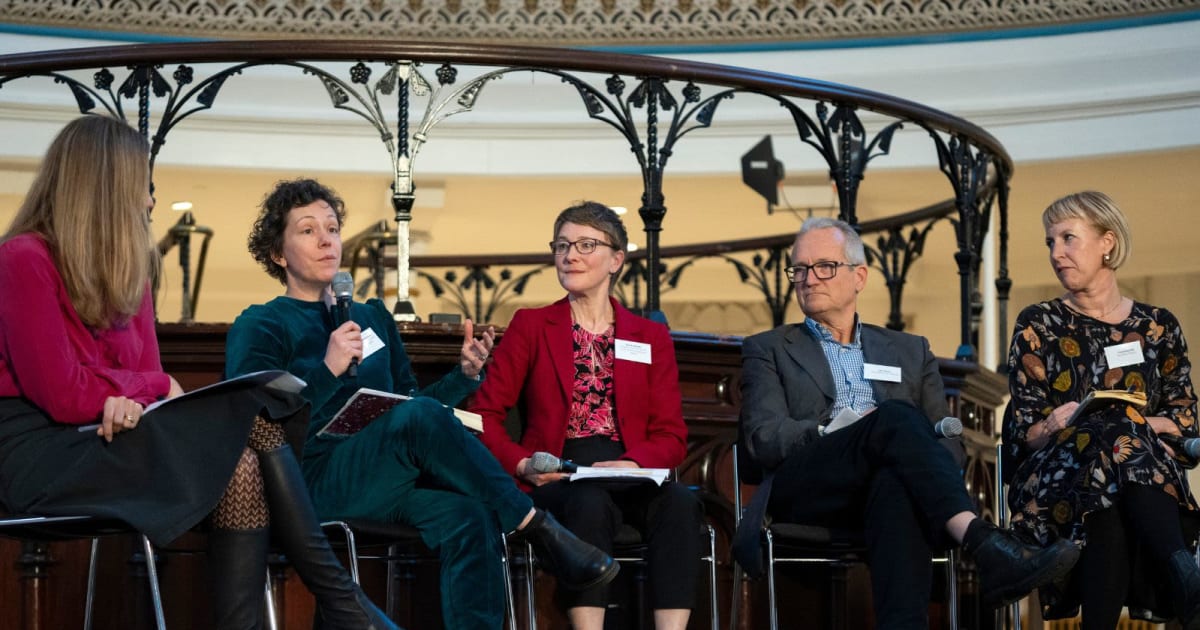By Hannah Corbett, Head of Communications
Volunteering can be a transformative experience. It connects people, sharpens skills, broadens horizons and even improves health and productivity. For many people, it’s more than just an act of giving—it’s a way to grow professionally while contributing to the community. Yet many civil servants don’t take the plunge. Only 30% volunteer and only 1 in 10 charity trustees are civil servants. Why is this?
At our recent Civil Alliance event, we brought together 300 leaders from civil society and government to explore volunteering barriers and opportunities. As part of the event, charity and government leaders shared their stories and solutions about volunteering.
Polly Payne, Director General for Policy, Department for Culture, Media and Sport (DCMS) chaired a panel discussion on encouraging volunteering. “Volunteering has made a huge difference in my life,” she said. She described how roles like being a school governor taught her to lead collaboratively and navigate resource constraints.
Charlotte Hill, CEO of The Felix Project, brought her perspective as both a trustee and a youth club volunteer. “I get energy from it,” she said simply. Volunteering lets her connect with diverse communities, giving her empathy and insight. She emphasised how The Felix Project makes volunteering accessible, offering one-day opportunities or flexible arrangements. “Civil servants who’ve joined us on secondments have learned invaluable lessons—and loved it,” she shared.
Breaking down barriers
Many government officials at the event said they wanted to volunteer but felt unsure where to start. The solution? Promote opportunities within departments. Use workplace networks to share success stories. Invite people to “try before they buy” with ad-hoc volunteering days.
One of the biggest hurdles is time. Most civil servants get five days a year for volunteering, but few take them. Managers need to champion these days, encouraging staff to use them creatively. Trusteeships, mentoring programs, or even practical tasks like painting shelters are all options.
The issue of conflicts of interest also looms large. Some worry about career repercussions, especially when charities are advocacy-based. As Marie Elise Howells, Deputy Director for Volunteering and Tackling Loneliness, DCMS pointed out, the civil service already has processes to manage these conflicts. “It’s about raising visibility of those tools,” she said.
Why it matters
The benefits are undeniable. For civil servants, volunteering hones leadership, communication, and governance skills. For charities, it brings invaluable expertise. Sarah Swash, Deputy Director – Head of National Biodiversity, Department for Environment, Food and Rural Affairs (DEFRA) described her journey from volunteer to board chair: “It’s taught me how to make things happen quickly. Plus, I’ve learned skills like marketing and fundraising I’d never encounter in my day job.”
Marie Elise Howells, DCMS added that experience as a trustee shaped her values and gave her crucial organisational insights that enriched her civil service role.
Volunteering also provides connection. Whether mentoring young people or engaging in conservation, it helps people integrate into their communities.
The way forward
A cultural shift is key. Volunteering shouldn’t be an afterthought but a celebrated part of civil service life. More secondments, mentoring programmes, and local opportunities would help. So would promoting existing guidance on overcoming perceived barriers like managing conflicts of interest and encouraging staff to make the most of volunteering days.
As Charlotte Hill said, “There’s something special about stepping away from your desk and doing something purposeful for a day.”
The time is ripe to make volunteering not just an option but a norm in the civil service. Let’s embrace it, promote it, and celebrate its impact.
